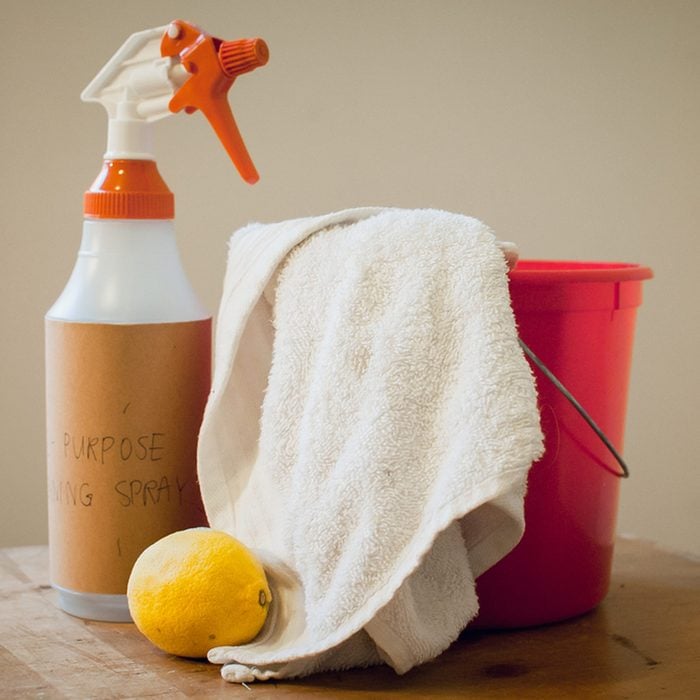
Homemade All-Purpose Cleaner
Try using this homemade all-purpose cleaner on bathroom and kitchen countertops and surfaces to disinfect and freshen your home. This recipe includes vinegar, which removes stains and odors, and anti-microbial essential oils to keep your home germ free.
Ingredients:
- Spray bottle;
- Small funnel;
- 1/2-cup vinegar;
- Two tablespoons baking soda;
- Tea tree essential oil;
- Eucalyptus essential oil.
Instructions:
- Take the top off of an empty spray bottle, place a small funnel into the opening and pour in 1/2-cup of vinegar.
- Add two tablespoons of baking soda, and wait for the foaming to subside.
- Add in 10 drops each of tea tree and eucalyptus essential oil.
- Fill the rest of the bottle with water.
- Screw the spray top onto the bottle, and shake well before use.
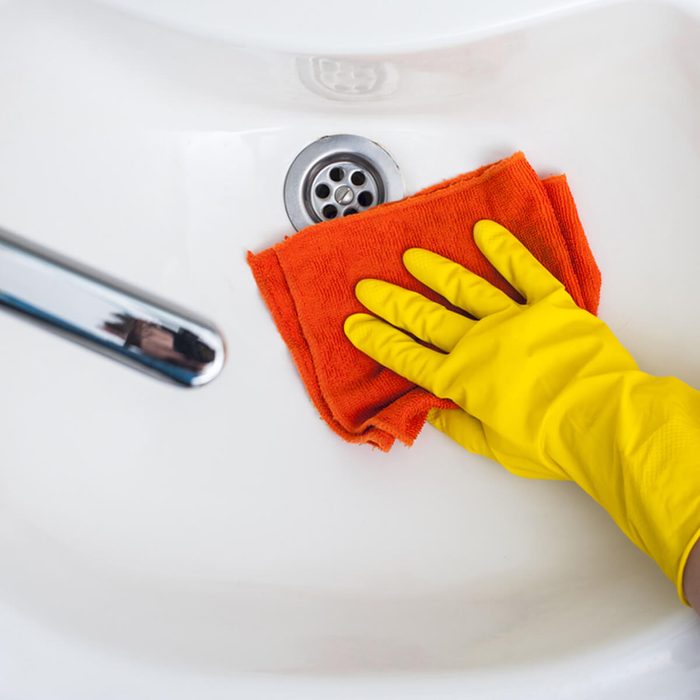
Simple Soft Scrub
Industrial soft scrub cleaners can contain strong chemical ingredients, but you can get your tub and shower just as clean with homemade cleaner. This simple soft scrub recipe will clean a bathroom faster and better, and uses a mixture of baking soda and vinegar, which will dissolve hard mineral deposits and easily cut through soap scum.
Ingredients:
- Empty dish soap bottle;
- Small funnel;
- 1-1/2-cups baking soda;
- 1/2-cup liquid Castile soap;
- Two tablespoons vinegar;
- Two tablespoons water;
- Tea tree essential oil.
Instructions:
- Take the cap off of an empty dish soap bottle. Make sure that you wash out the empty dish soap bottle well before using it to make soft scrub cleaner.
- Place a small funnel into the opening of the bottle, and pour 1-1/2-cups of baking soda, 1/2-cup of liquid Castile soap, two tablespoons of vinegar and two tablespoons of water into the bottle. Wait for the foaming to subside.
- Screw the cap onto the bottle, and shake it vigorously for around two minutes.
- To use, squeeze the simple soft scrub cleaner onto the surface, and scrub using a wet washcloth or cleaning brush.
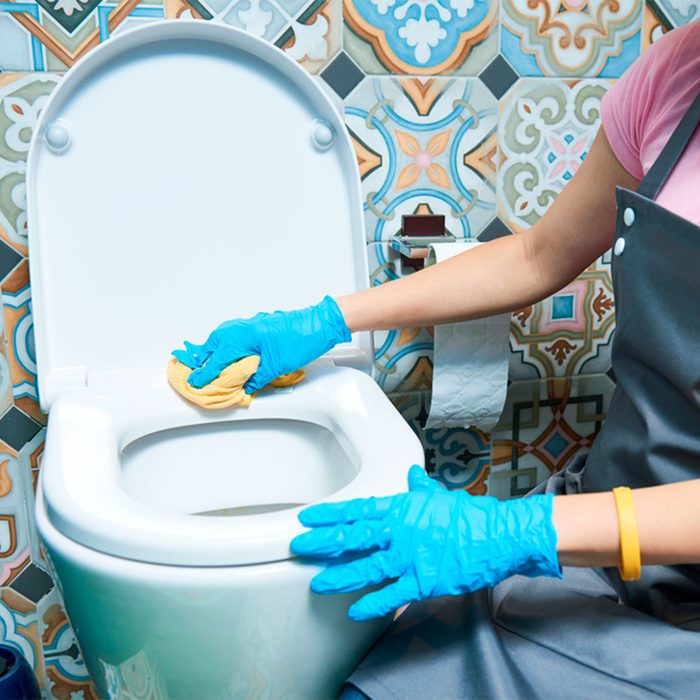
Natural Toilet Bowl Cleaner
Many commercial toilet bowl cleaners use chlorine bleach, but not this natural toilet bowl cleaner. Instead, castile soap and baking soda get the job done. Plus, you won’t have to worry about accidentally exposing your pets or children to toxic toilet water.
Ingredients:
- Large squirt bottle;
- Small funnel;
- 1/3-cup liquid Castile soap;
- Two cups water;
- Two tablespoons baking soda;
- Lemon essential oil;
- Eucalyptus essential oil;
- Lavender essential oil.
Instructions:
- Take the top off of a large squirt bottle, which you can find at most home improvement stores.
- Place a funnel into the opening of the bottle, and pour in 1/3-cup of liquid Castile soap, two cups of water and two tablespoons of baking soda. Wait for the foaming to subside.
- Add in five drops each of lemon, eucalyptus and lavender essential oils, which both freshen and disinfect.
- Screw the cap into the squirt bottle, shake well and squirt into the toilet bowl.
- Allow the homemade cleaner to sit for a few minutes, then use a toilet brush to scrub the bowl clean.
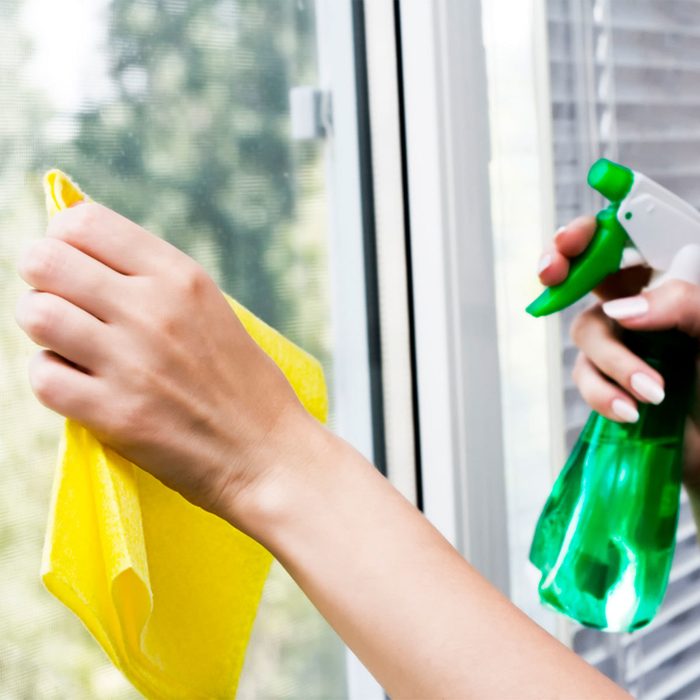
Homemade Window Cleaner
Forget using chemical cleaners to wash windows. They’ll look clean as a whistle with this all-natural homemade window cleaner, which uses vinegar and cornstarch to buff those fingerprints away.
Ingredients:
- Empty spray bottle;
- Small funnel;
- 1/2-cup vinegar;
- One tablespoon corn starch;
- Two cups water;
- Lemon essential oil;
- Grapefruit essential oil.
Instructions:
- Take the top off of an empty spray bottle, place a small funnel into the opening and pour in 1/2-cup of vinegar, one tablespoon of corn starch and two cups of water.
- Add in five drops each of lemon and grapefruit essential oils.
- Screw the spray top back onto the bottle,and shake well before use.
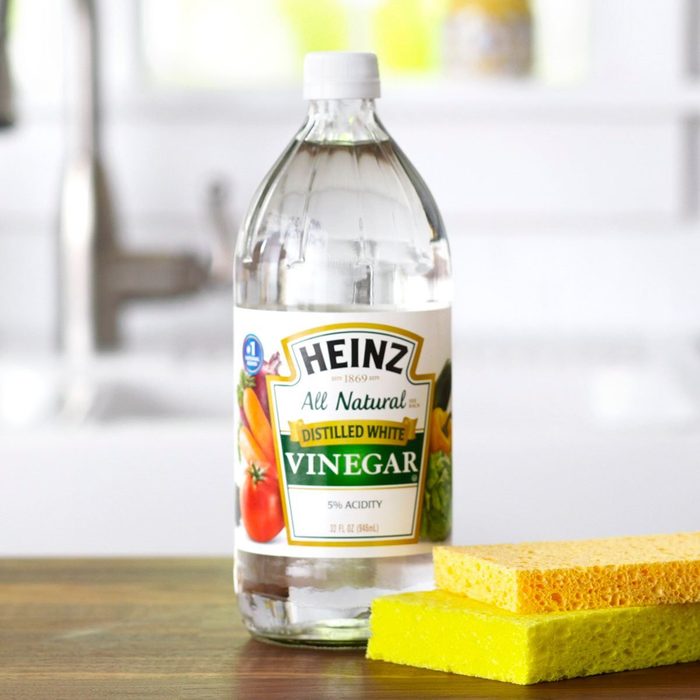
An Old-School Remedy
A little research will show you cleaning wood floors with white vinegar and water is highly contested, but it’s definitely worth a try if you’re looking to avoid harmful chemicals.
Depending on the strength of acetic acid (the chemical component in vinegar that breaks down oils and sugars) you’re looking to apply to your floors, go for anywhere from a half cup to a full cup of vinegar per gallon of water.
Another plus side? If you’re into natural remedies, you likely already have a variety of vinegars in your cabinet or refrigerator. (Best to avoid the red wine variety.)